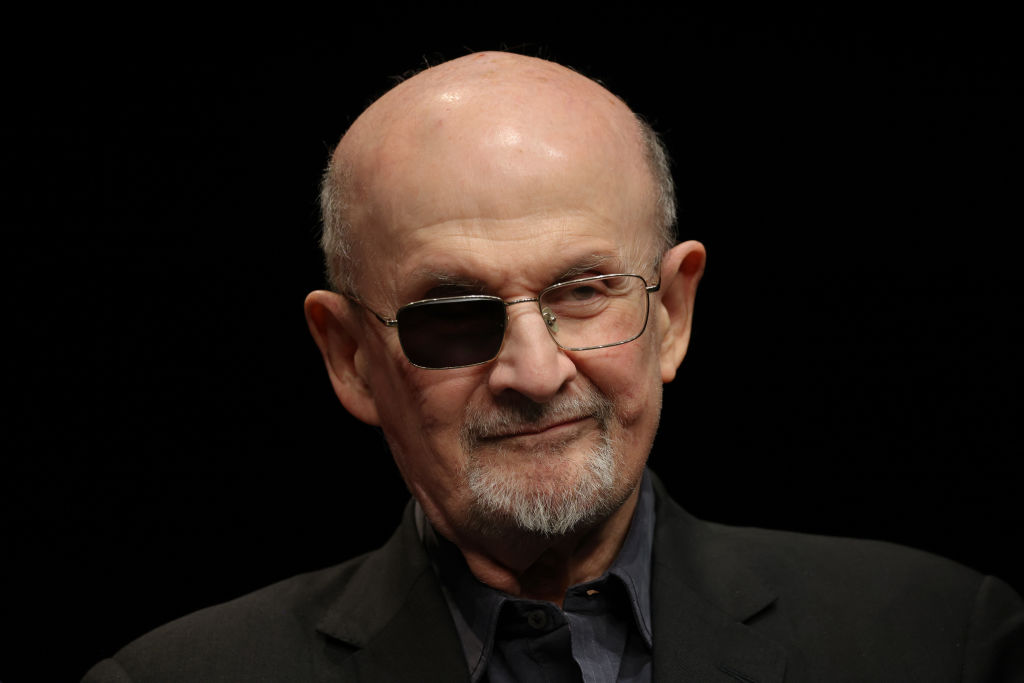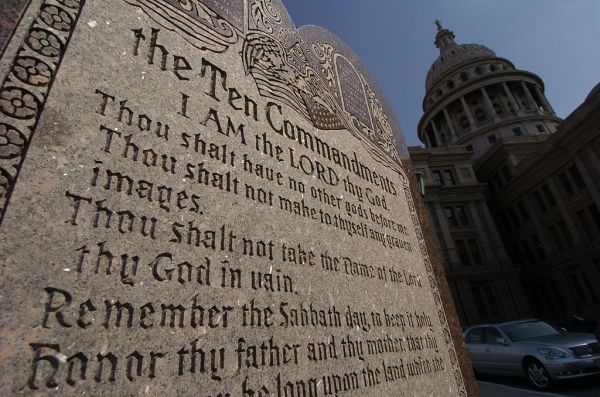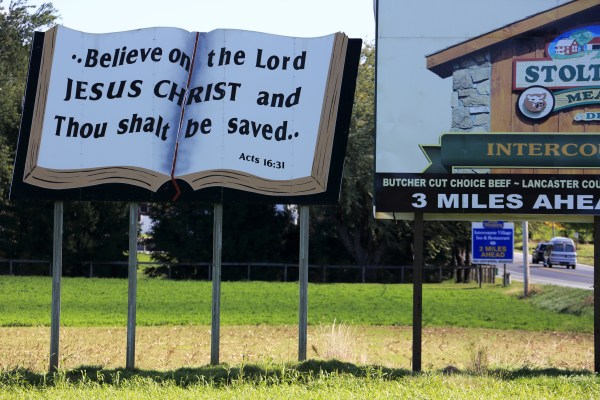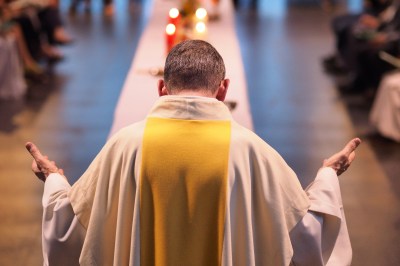Hi and happy Sunday. Sometimes understanding the role religion plays in our lives is best done through scholarly research. Sometimes it’s easiest to see through news reporting. And sometimes a touch of the personal helps elucidate it.
Today, Campus minister Scott Salvato examines the variety of thought, belief, and practice among Roman Catholics through his unique lens. A bit about Scott: He’s written several explainers for The Dispatch in the last year, but proved his skill as a personal essayist with a piece earlier this year reminiscing on growing up with plenty of both Catholic and Jewish friends.
But as the country’s second Catholic president now prepares to leave office in the next few months, it’s natural to ponder what it means to be Catholic and care about the public square.
Scott Salvato: Different Catholic Strokes for Different Catholic Folks

My earliest recollection of my Catholicism and American politics interacting was when my mother explained to me that my grandfather—her sainted father—was a true conservative down to his bones because this working-class, Bronx-born, Irish Catholic with nine children had ... voted for Richard Nixon instead of John F. Kennedy in 1960. Ed Downey had a high school education, worked three jobs to support his large family, and carried around in his pocket (and read when he had a spare minute) a miniature primer of Saint Thomas Aquinas’ Summa Theologica.
But apparently JFK’s anti-communist and limited-government bona-fides were not up to snuff for his fellow Irish Catholic on Long Island—while much of the rest of Catholic America was swooning over and celebrating Kennedy.
Since then, in the midst of a lifetime of Catholic-schooling, baptisms, first communions, confirmations, weddings, funerals, and family parties, politics did occasionally arise among the scores of Catholic aunts, uncles, and cousins at our raucous family gatherings. We had World War I, World War II, Korean War, and Vietnam War veterans in the family—and we had some hippies as well. Groups of us went with our parish to the March for Life in Washington, D.C., and some were assertively pro-choice. Many of the extended relatives of the baby boomer generation of my parents did not necessarily continue to practice the Catholic faith into adulthood the way their parents had until the end of their lives: Mass every Sunday, confession a couple of times of year, etc.
The country’s second Catholic president, Joe Biden, is from an older generation and will soon be out of office. He is both a publicly observant Catholic and one who is forcefully criticized for opposing church teaching on hot button moral issues like abortion and gay marriage. It provokes the discussion again: What is a Catholic? Pollsters consistently ask Catholics their opinions on a variety of issues. Is being Catholic defined by belief, practice, or simply a self-expressed identity? The answer is: It’s complicated. And it depends on who you ask.
My own father attended Mass only on Christmas, Easter, and to celebrate someone in the family receiving one of the sacraments for the first time. But we saw his mom—my nana—and his three sisters at Mass all the time. And my dad worked extremely long and hard to send all four of us to Catholic schools. He never had a bad word to say about the faith or the church. His agnosticism he kept to himself—as he did his politics.
John Salvato was a Vietnam combat veteran and a Scoop Jackson-style Democrat—although he wasn’t preoccupied with politics. He was too busy. He registered to vote with the New York Right-to-Life Party in solidarity with my mother, but he talked politics with us only from a perspective of American history. This baffled me as I was 9 years old when Ronald Reagan was elected president, and as far as I could see a lot of the people we were close to were happy Reaganites—patriotic with respect to our country’s past and optimistic about its future. I couldn’t understand why my dad didn’t vote for Reagan—but I certainly knew better than to ask.
That Catholic education my brother and sisters and I received provided exposure to scripture, liturgy, Christian doctrine, the humanities, and a good deal of philosophy and natural law. You really don’t understand how deep and pervasive the effect on your mind such an education has while you’re receiving it. One of its effects is the willingness and ability it engenders to explore issues from many different perspectives, simply as a matter of practice. Although medieval theologians and Jesuits have long had the reputation for speculation and making any topic unendingly complex, in truth, it has been a part of Catholic intellectual life from its earliest years—St. Augustine of Hippo being one the giants of Christian theology. It comes from this tradition and a desire to intellectually plumb the fathomless depths of the faith.
It also comes from being a part of a truly global church with every nation, race, and language represented. You’re forced to consider other varied expressions of Catholicism that are just as authentic as yours. The last four popes themselves came from four different countries and emphasized different priorities. Some years ago, an Irish friend was vigorously explaining to me how the Catholic Church in Ireland had controlled everything, especially public education. According to him the church had controlled, until recently, everything throughout Ireland, and everyone in the country had grown sick of a national Catholic education. He was no fan of the church. But I had also observed him (and other Irishmen) complain about the inadequacy of American education compared to the excellence of this very same Irish education that he had also bemoaned. It looked to me, I pointed out, like he and his countrymen had been educated so thoroughly and completely to think for themselves by the church that they had the independence of mind to reject the church and its control of education. The church, I said, had given them one hell of an education! He looked at me for a long while, and said finally, “I don’t like that at all. Because it’s probably true.”
In politics, the effect of this Catholic education and culture can manifest itself in how Catholics of every stripe may claim their political beliefs emerge from some corner of their faith’s teaching. Though they themselves may not have rigorous intellectual training, you absorb enough as a practicing Catholic to see the world this way. By way of contrast, you will probably find politicians of different religious denominations—Judaism, Mormonism, evangelical Christianity—gravitating to mostly one political side or another. Now imagine a Catholic Mass attended by Joe Biden, J.D. Vance, Clarence Thomas, Sonia Sotomayor, Andrew Cuomo, Ron DeSantis, John Kerry, Paul Ryan, Nancy Pelosi, Chris Christie—the list could go on and on. The same goes for a Catholic parish, a Catholic school, or a Catholic family. And the arguments therein can be real doozies. Yet in my experience, the faith also really does transcend politics. The disagreements are deep. The shared faith and culture are far deeper still.
That’s why it’s easy to recognize various strands of Catholic politics: the social justice Catholic who is preoccupied with a preferential option for the poor, immigration reform, and racial justice; culturally conservative Catholics who focus on pro-life issues, traditional sexual morality, and orthodox doctrinal beliefs; and Catholics who come down differently on the host of issues that are almost entirely matters of prudential judgment: taxes, trade, transportation, public health, foreign policy, etc.
You can find church teaching to justify an awful lot of those positions. The idea of limiting federal power? The church’s teaching on subsidiarity will support your contention that society and its issues should be dealt with on the most local, personal level possible. Labor unions? The papal encyclical Rerum Novarum (1891) joins in the belief that workers have the right to organize and protect each other’s interests. Pick an issue, and you are likely to find general guidance on a topic based in scripture and church teaching—but you will find no instruction on how to vote, nor even what type of government for which to advocate. Only that Christians have the duty to sanctify the world with their work and their lives as best they understand.
The Catholic Church has seen a great deal of politics in 2,000 years. It has seen empires rise and fall, new worlds discovered, and whole new systems of government emerge in human history. Its guidance to its people has always had its heart in the Gospel of Jesus Christ. Pope John XXIII tried in 1959 to sum up the Catholic spirit of the many differences of opinion in how that Gospel is lived in the world when he quoted an ancient bit of Christian wisdom, “In essentials, unity; in doubtful matters, liberty; in all things, charity.”
Mustafa Akyol: Salman Rushdie Was Targeted by Unreason. Religion Can Offer Better.

Author Salman Rushdie—perhaps best known for his 1988 novel The Satanic Verses and for Iranian leader Ayatollah Ruhollah Khomeini calling for his assassination—survived a gruesome stabbing more than two years ago while speaking in New York. Rushdie wrote about the ordeal in his newest book, Knife: Meditations After an Attempted Murder, which was released earlier this year. With the trial of the man accused of nearly killing Rushdie set to begin this week, Cato Institute senior fellow (and Dispatch Faith contributor) Mustafa Akyol reviewed the book for our website this weekend and explored Rushdie’s antipathy toward religion:
As for Rushdie the thinker, many ideas in the book double-down on a rather critical view of religion, which Rushdie calls “an ancient form of unreason.” … “I have no issue with religion,” he adds, when it is “the private faith of anyone.” When religion moves out of this “private space,” however, it becomes a problem because it imposes “values on others.”
Rushdie could be well excused to have such skeptical views on religion. He’s experienced the worst forms of it. It was indeed religious “unreason” and “imposition” that threatened his life for decades and finally came close to murdering him. But is there no middle ground between those two alternatives?
The late great Father Richard Neuhaus, who founded the religious journal First Things, had believed in this third way and conceptualized it nicely. On the one hand, he noted, there are secularists who seek a “naked public square”—the one preferred by staunch French secularists or communist regimes. On the other hand, there is the “sacred public square”—the one preferred by Khomeini, the Taliban, and perhaps even some American postliberals. But there is a third and better option: the “civil public square,” where all worldviews can freely express themselves without turning oppressive.
More Sunday Reads
- Does it seem like Hollywood is pumping out movie after movie centered around exorcisms? Joseph Holmes thinks so, and for Religion Unplugged he writes his explanation for why—and why it probably won’t stop anytime soon. “Contrary to popular belief, younger Americans are not becoming more atheistic. According to Pew Research in 2023, most ‘nones’ continue to be spiritual and believe in some higher power. They simply reject organized religion as a way to get there. As Tara Isabella Burton wrote in her 2020 book, ‘Strange Rites: New Religions for a Godless World,’ institutionalized religion is being replaced by whatever feels right to the individual. Dr. Jean Twenge, author of the book ‘Generations’ summed up the challenge to traditional religion this way: ‘In short, because it is not compatible with individualism — and individualism (is) Millennials’ core value above all else.’ However, as Carl Jung noted, you can’t simply create meaning. You have to pull meaning from what already exists. So inevitably, when people try to create a new spirituality, they have to pull on the old ideas and remix them rather than simply create something fully new.”
- Our friends at The Pillar are covering a notable fight going on within the Baghdad-based Chaldean Catholic Church—one of nearly two dozen Eastern Catholic churches in communion with Rome. The conflict is primarily between Chaldean leader Patriarch Cardinal Louis Sako and bishops sympathetic to Iraqi militia leader Rayan al-Kildani, including Archbishop Bashar Warda. “While Sako has painted Warda as a Kildani sympathizer, sources close to the Erbil archdiocese have a different take, saying the archbishop is focused on trying to avoid Sako’s political fight, especially amid the fracturing reality of a country in which ISIS remains a threat, especially for Christians — with ISIS attacks in Iraq and Syria reportedly set to double this year. The conflict between the bishops is complex, with some Chaldean Catholic sources telling The Pillar that while Sako is respected because he holds the office of patriarch, his reportedly liberalizing theological and liturgical tendencies, along with an autocratic style, have alienated many figures in the Chaldean Church, even apart from the conflict with al-Kildani.”
A Different Kind of Sunday Show
Author Hannah Anderson created a bit of a stir on X this week, which even elicited a response from Republican vice presidential nominee and Ohio Sen. J.D. Vance. Her comments about Vance’s positions on child care and family policy were also closely tied to her Dispatch Faith essay from last week. Anderson joined me for a (pre-Vance/Twitter kerfuffle) conversation this week on the Dispatch Faith video podcast. Head over to our YouTube channel to check it out and pass along.
A Good Word
Zakia Khudadadi took the bronze medal in taekwondo during last week’s Paris Paralympics while competing for the Refugee Paralympic Team, which she competed on for a host of reasons. In 2021, Khudadadi fled Afghanistan ahead of the Taliban’s takeover—and the regime’s subsequent brutalization of women. But she also belongs to the Hazara ethnic group, which practices the Shiite branch of Islam—making the group subject to persecution by the Taliban. (Here’s a helpful backgrounder on Hazaras.) So Khudadadi, who escaped to France in August 2021, is doubly inspiring. “My life has been a journey filled with ups and downs. I faced death threats and even contemplated suicide. What set me apart was my disability. When I looked in the mirror, I knew I was missing a hand,” she said recently. “But I pictured in my head having an iron hand instead that made me impossible to stop. In that way, my disability has given me extra strength. It is a great honor because I am representing millions of refugees who have disabilities in these Games, and I will participate with immense pride.”






Please note that we at The Dispatch hold ourselves, our work, and our commenters to a higher standard than other places on the internet. We welcome comments that foster genuine debate or discussion—including comments critical of us or our work—but responses that include ad hominem attacks on fellow Dispatch members or are intended to stoke fear and anger may be moderated.
With your membership, you only have the ability to comment on The Morning Dispatch articles. Consider upgrading to join the conversation everywhere.